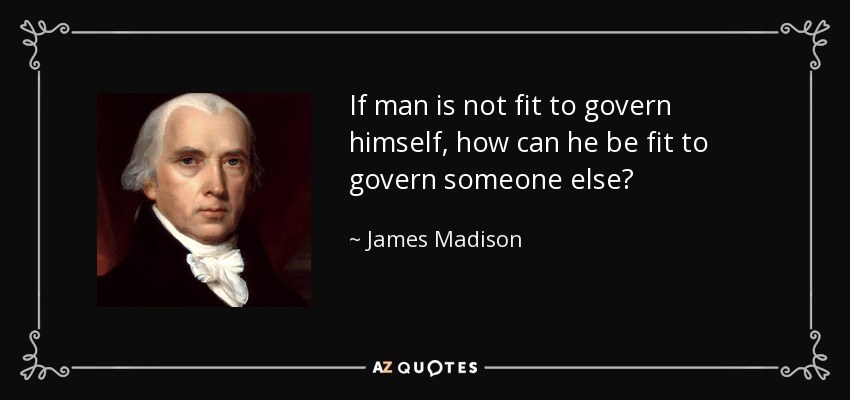
One of the most important facts of manhood is the embodiment of values and principles. A man does not become a man just because he reaches a certain age or his body ages. He becomes one once he begins to operate as one.
A step towards conducting oneself like a man is the creation of a personal code. You can call it a personal constitution, a personal manifesto or a personal set of rules, but whatever you call it, it is important for a man to have one.
You do not need to write it down, as I have, but it is something which you need to give thought to. The reasons governments and kings can rule over nations is because they are instilling onto nations the code of the country. So if you wish to rule in your own domain, then similarly, your reality must also be guided by the same principle.
- Below is taken from the written document of my own personal code. Every now and again I read it to remind myself of who I am. It instills me with confidence and a sense of groundedness as I remember who I am.
- I allow my personal values to guide me in specific situations of my life. To go against my personal values, is no different from committing a crime in society or a sin in religion.
- As I grow and gain experience, I will surely update, add or change my personal code, and I believe this is healthy. But for now, this is what I believe to be the best set of norms upon which I should operate on in my own life.
- I didn’t necessarily write it to be shared. So perhaps it may not even be understandable to those that read, but most importantly, I understand how to interpret it for myself and I thought I’d share anyway just for the one person who may resonate with it.

PERSONAL CODE & BEHAVIOUR
1. Seek to speak, live and act with the spirit of truth. Be willing to lose anyone in order to maintain being true to yourself.
2. Always seek to take responsibility for your journey and accountability for your results.
– 2.1 Do not spread misinformation. For those that listen to you, let them know the reliability of the information you share. Do not say something as if it is a fact, if it is your opinion. Let them know it is an opinion.
3. Gain knowledge daily. Study everyday. In your energy, start the day full and end it empty, but in your knowledge, start the day empty and end it full.
4. Spiritual fulfilment is a personal journey. Protecting your own energy before anyone else’s is a priority. Never give more value than what they deserve or give to you, as this is an unfair exchange.
– 4.1 – If you have to disrupt the peace to protect yourself, it must be done. This goes for everyone. It prevents being taken advantage of.
– 4.2 – Do not take value from others for your own gain. For example, do not ask for favours, unless you can make it an even exchange of value in some way or at some time. Next example, do not pressure others to do things just because it benefits you.
5. Do not give up freedom for temporary pleasures.
– 5.1 – Never sacrifice the liberty of exercising your nature.
– 5.2 – Your body expresses your values. If you are healthy, never go more than three days without working out, but aim for daily workouts. Avoid an unhealthy diet.
6. Always seek more and never settle for less. This is a complacent mentality. Even where you choose minimalism, let it be out of stoic gratitude and from freedom of choice, and not societal expectation.
– 6.1 – There is a difference between the entity which makes money and the worker who gets paid for their time. Seek to be the one who can make it, but do not forget to value workers who help run the infrastructure.
– 6.2 – Prioritise continuous passive income over active income. Accumulate assets. Generational wealth and financial freedom should influence your financial decisions.
7. Never compromise your values, not even for your own emotional pleasure or contentment.
– 7.1 – If you must suffer in order to keep your ethics, it must be done.
– 7.2 – If you must suffer to remain responsible or take accountability, it must be done.
– 7.3 – Work on your discipline everyday.
8. When there is chaos in the environment, relax the body and the mind.
– 8.1 – Be comfortable in uncomfortable or awkward situations.
– 8.2 – Do not avoid truth or righteousness to satisfy temporary comfort.
9. From a relaxed state, always assess situations with logic. Uncontrolled emotions make you susceptible to manipulation (from yourself and others), as well as produce bad decision-making.
– 9.1 – Rarely move with haste before you are ready. But if you must, make the most logical decision with the amount of information you have. This guarantees the highest probability of the outcome you want.
– 9.2 – Privately question your decisions to be sure that you are making the right one. A balanced perspective is healthy, as truth will always win in the end.
– 9.3 – Be wary of uninvited opinions, but frequently invite other perspectives.
– 9.4 – Once your mind is set to task, do it with conviction.
10. Lead with honesty. To be dishonest is to give a person an inaccurate perception of what they are consenting to.
– 10.1 – It is better to speak with full assuredness rather than uncertainty, even when you are unsure. It is hard to attack boldness and difficult to shame authenticity.
– 10.2 – It is your duty to explicitly educate your woman on her role beside you. You cannot expect her to submit to leadership which is unclear. But once leadership value has been demonstrated and structure has been presented, expect compliance. To accept an un-submissive woman is to accept the idea that you aren’t good enough to lead. Where you do not lead, chaos will breed.

